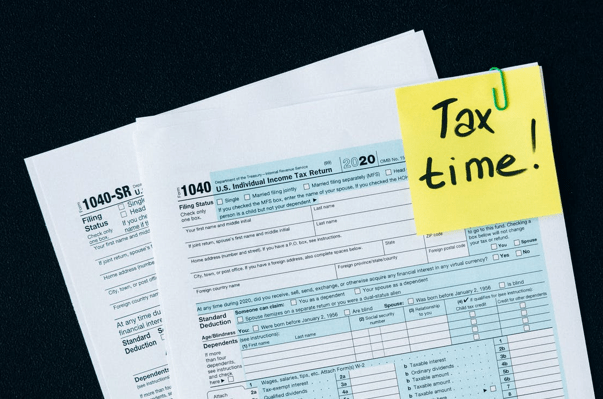How To Do Your Bitcoin and Crypto Taxes in 2022
Investing in Bitcoin and other cryptocurrencies seems like an intelligent thing nowadays. But, are you aware of how you can increase your income safely?
Whether or not you’re just diving into the blockchain universe, you have to know which taxes you own and how much you need to pay for your profits. Thus, the constant changes in regulations are just a result of the boom in this industry. Keeping up with these is a must when you start buying or selling Bitcoin or crypto.
There are many instances where you have to pay taxes for your investments. Any action such as trading can influence your tax bill and the profits you make at the end of the year.
Here’s a complete guide for all taxes you have to pay in 2022 for your financial gains!
People who have to pay Bitcoin or Crypto taxes
Anyone who invests in Bitcoin or crypto has to pay taxes. When it comes to taxable income, any transactions, such as buying or selling Bitcoin, are viewed as regular investments, just like stocks and shares.
This principle applies to the majority of tax jurisdictions. For instance, in the United Kingdom and the United States, there were no updated laws when referring to taxation. In the UK, Her Majesty’s Revenue Service (HMRC) issued a guideline in which it is mentioned that cryptocurrencies are considered properties.
Also worth mentioning is the rate from which your profits are liable for taxation. This happens when you buy any crypto and then sell it later at a profit. Should you have more than £12,300 in financial gains for the 2022-2023 financial year, your income will become taxable.
As for the US citizens, they need to know that the Governing Authority is The Internal Revenue Service (IRS). The IRS views all cryptocurrencies as capital assets regarding how the cryptocurrencies are regulated. Therefore, you’ll owe taxes when you sell them at a profit.
About the tax season
First and foremost, you need to understand the circumstances which may impact your tax bill at the end of the financial year. You can do many things when investing in Bitcoin or other cryptocurrencies.
Many investors usually buy crypto and then leave it untouched for many years without considering selling it in the foreseeable future. It seems like the wisest decision you can make if you don’t want to track every regular change on the market. On the other hand, others become traders and make investments a primary source of income. No matter in which category you fit in, it’s better to be instructed before making any decision.
Actions that lead to a taxable income
● Buying and selling cryptocurrencies
This is the most common situation. If you buy a cryptocurrency, then later sell it at a profit, you’ll owe taxes for your profit. However, if you had some capital losses through trading, then these losses will minimize your capital gains tax bill.
● Swapping cryptocurrencies
If you’re swapping crypto, this will trigger a tax, as such actions involve selling your crypto to other investors or liquidity pools. Very important to mention is the fact that if you trade huge amounts of cryptocurrencies, you’ll be considered a trader and asked to pay income tax on trading instead of capital gains taxes.
● Getting paid in Bitcoin or other cryptocurrencies
It doesn’t matter how much you earn; you’ll have to pay income tax and national insurance contributions.
● Mining Bitcoin or other cryptocurrencies
If you obtain cryptocurrency by mining, selling it for goods or services, or getting it through promotion, it will become part of your regular taxable income.
● Using Bitcoin or other cryptocurrencies
If you buy goods or pay for services using cryptocurrencies, your purchase will become a sale of crypto. You’ll owe capital gains taxes and any applicable sales tax if your profits have an increased value in comparison to what you paid for them in the first place.
● Inheriting crypto
If your tax jurisdiction considers crypto an asset, you’ll owe taxes. For example, under UK’s tax law, crypto is treated as property; therefore, UK citizens will pay taxes for any cryptocurrencies they inherit.
● Earning profit from crypto gambling
This is a major aspect that needs to be addressed by each jurisdiction. For example, in the UK, gambling winnings have not been taxable since 2005. Theoretically, if you’re using an online crypto gambling platform, your profits should not be liable for taxes. However, these financial gains will probably become taxable if you sell your crypto for money.
The value of taxes
The value of taxes varies from one jurisdiction to another. As for citizens of England, Wales, and Northern Ireland, if they report the profits from crypto as an income, these will be part of their income tax. The rate of tax ranges from 0% and 45%.
According to the HMRC regulations, as a citizen of England, if you earn between £0 to £12,570, your tax rate will be 0%. But if you gain profits between £12,571 to £50,270, the rate will increase up to 20%. This rate is called “basic.” Furthermore, if you earn between £50,271 to £150,000, your rate will be 40% (higher rate). At last, if you obtain profits over £150,000, your rate will be 45% (additional rate).
Be aware that these are the rates applied for citizens of England, Wales, and Northern Ireland, for the financial year 2022-2023. Scotland applies an extra band of 19% for starters and another rate of 21% for intermediates.
These rules are applied differently for US citizens, as the IRS adjusted the tax brackets for 2022 to follow inflation. Also, the rates change for long-term and short-term investments.
Differences and similarities between crypto and gambling
When we refer to Bitcoin and crypto taxes, there’s a strict limit of £12,570, which, if exceeded, the tax will be applied.
In the United Kingdom, the main difference between the taxes applied on gambling winnings and crypto profits is that gambling income is not taxable. Citizens of the UK do not owe anything to the government for the earnings of any gambling, such as lotteries, slot machines, sports betting, poker, and others, without worrying about owning anything to anyone. Everything comes right in their pocket.
However, there are specific instructions when obtaining funds from gambling-related activities. One of the guidelines stipulates that a professional player, who is being paid for appearances or benefits such as free tickets to a tournament, has to declare and pay taxes due to these being an extension of payment.
Thus, crypto taxes are applied after the limited rate is exceeded, while gambling taxes are used when the gambler obtains earnings on top of their winnings.
Ways to minimize your Bitcoin and crypto taxes
● Keep your Bitcoin or other cryptocurrencies for the long term
For example, the IRS guidance released in 2019, if you keep your crypto for longer than a year before selling it in the US, your income will qualify for the preferential long-term capital gains rate. It means that instead of paying a rate of almost 37%, you can go down to a rate of only 20% of your profits!
● Claim your losses
Claiming losses on your investments is a smart way to reduce the rate of your taxes. During a year, if your profits are £5000 and your losses are £4000, your tax will apply to the profit of £1000 you made.
● Deduct expenses
You can deduct anything from your mining income expenses from a computer, internet service, electricity, or servers. The sum of money will vary depending on whether you do this as a hobby or business.
● Make donations
If you do not need all the profits you made in a year and want to decrease the burden of your taxes, you can always donate your crypto.
Bottom Line
Whether you are already an investor or not, Bitcoin or other cryptocurrency transactions involve risks and responsibilities.
The best advice for each trader is to make sure you keep track of all your sales, purchases, and transactions. This will be handy at the end of the financial year as you need to report your gains and losses when paying your taxes.
All in all, you must pay all your dues, as the costly penalties would probably exceed the tax fees you should have paid initially.


